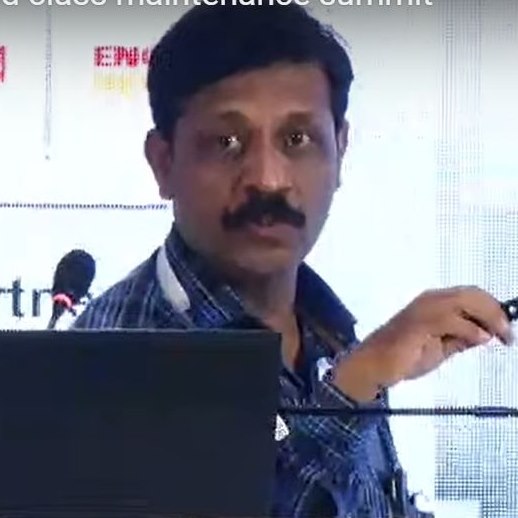Asset Reliability
This Is Not Your Playing Field — This Is Business. #useCMMS
- 22 April. 2025
- 11 min read
In many industrial plants, maintenance teams have long been the unsung heroes—rescuing operations from breakdowns, improvising workarounds, and getting production back on track under tough conditions. Their grit, hands-on experience, and quick problem-solving have been critical in keeping machines humming. But today, the industrial world is transforming rapidly. Competitive pressures are rising, compliance is tightening, and margins are shrinking. In this environment, heroism is no substitute for process. And traditional ways of working no longer cut it.
All Tech and No Human Play Makes the Field Dull — But No System Makes It Dangerous
Maintenance excellence today is a fusion of skilled people and intelligent systems. When technicians resist systems like CMMS (Computerized Maintenance Management Systems), citing experience or legacy practices, they turn a critical business function into a playground of personal methods and fragmented processes.
This blog explores why maintenance teams must let go of outdated attitudes and adopt structured, data-driven tools — not because CMMS is perfect, but because it's necessary.
-
The Pitfall of the Hero Mindset
There’s a sense of pride that comes with solving a complex failure using your own method. That pride is well-earned. However, when this mindset dominates the culture, it discourages standardization. Maintenance becomes a game of who knows the most quirks, not who follows the best process. It may feel satisfying to “save the day” repeatedly, but it’s inefficient and unsustainable.
CMMS doesn’t replace the hero. It ensures the hero’s knowledge becomes part of the system so that others can act with the same confidence, even in their absence. That’s how organizations grow — not by hoarding skill, but by institutionalizing it.
-
When Process Feels Like a Threat
Often, CMMS is viewed as a watchdog — tracking time, forcing documentation, adding bureaucracy. But that perception stems from insecurity or unfamiliarity. In reality, CMMS is about visibility, not surveillance.
When work orders are logged, asset histories are maintained, and breakdown trends are monitored, it enables better planning, faster response times, and informed decisions. It also protects the technician — because now, the record shows exactly what was done, when, and why. That’s professional transparency.
Without a system, maintenance knowledge remains informal, untracked, and vulnerable to attrition. And when those key people leave, they take half the plant’s knowledge with them.
-
Your Struggles Are Not Unique
“We have special challenges.”
“We’ve always done it this way.”
“Our plant is different.”
These are common refrains in plants resisting CMMS Adoption. But while each facility may have unique elements, the core challenges—unplanned downtime, poor spare parts availability, mismanaged work orders, lack of visibility—are universal.
Relying on spreadsheets or technician memory isn’t resourcefulness—it’s risk exposure. CMMS is not a disruption to your method; it’s the structure that supports it. It captures data in real time, connects departments, aligns tasks, and allows for optimization over time.
-
Why It’s Not Just a Tech Tool
The fear of technology “taking over” is not unfounded. Many digital tools are introduced without proper training, context, or support. But technology alone doesn’t fix processes — people do. CMMS is only as powerful as the mindset behind it.
Used right, it doesn’t just digitize tasks — it transforms them:
- Instead of chasing paper, you get real-time updates.
- Instead of relying on tribal knowledge, you access structured history.
- Instead of reacting to failures, you plan interventions based on trends.
Technology isn't a magic wand. It's an amplifier. If your team has good habits, CMMS will make them better. If not, it will reveal the gaps.
-
Business Is Not a Game — It Requires Discipline
Maintenance affects safety, cost, productivity, and customer satisfaction. That’s not a game — that’s business. In business, decisions must be data-backed. Efforts must be scalable. And systems must be dependable.
When teams see CMMS as a threat instead of a tool, they lose sight of their real goal: ensuring assets deliver consistent value. Maintenance is not about fixing things when they break. It’s about making sure they don’t break in the first place.
This requires planning, analysis, communication — all things that a CMMS is designed to enhance.
Final Word: Align Grit with Growth
Your maintenance team’s experience is gold. But without a system to capture, repeat, and improve on that knowledge, it remains limited to individuals. CMMS isn't about removing autonomy — it's about enabling sustainable excellence.
Let go of the notion that technology undermines skill. Let go of the idea that the system is the enemy. This is no longer a space for “one-man shows” or tribal practices.
This is not your playing field. This is business. #useCMMS
And in business, results matter more than methods. When the field gets serious, so must the system. Use CMMS to make your skills visible, your wins repeatable, and your impact undeniable.
About ReliaMaint
Stay tuned to for insights on asset reliability and maintenance management..

Neeraj Kumar
CEO & Co-Founder
Recent Posts
Planning and Scheduling in Equipment Maintenance.
What CEOs Need to Know About Physical Asset Management.
CMMS.. a catalyst for reliability culture
How Data Driven Process of Reliability and Maintenance can enhance Asset Performance.
Categories
Tags
Newsletter
Contact us
Contact us to Know more on these Topics.
Send